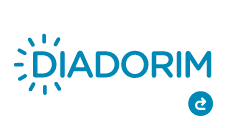Dance in Integrated High School at the Federal Institute of Education, Science and Technology in the state of Maranhão (IFMA)
A Case Study
DOI:
https://doi.org/10.35699/2238-2046.2018.15599Keywords:
Dance, Integrated High School, Professional / technical educationAbstract
This article discusses the inclusion of Dance as a compulsory part of the integrated professional curriculum at the Federal Institute of Education, Science and Technology of Maranhão – IFMA. The approach for this researchis qualitative, and it is configured as a case study (YIN, 2015), with an analysis of students’ perceptions of three technical courses about the Art / Dance subject area in their courses. We discuss the transformations within professional education in Brazil as well as legal and theoretical perspectives on the approaches of polytechnic education and the teaching of art / dance in high school level. The results show the positive contribution made by the inclusion of dance in technical education, in the integrated high school system.
Downloads
References
BRASIL. Base Nacional Comum Curricular (BNCC): Ensino Médio. Brasília: MEC, 2018.
______. Parâmetros Curriculares Nacionais para o Ensino Médio - PCNEM. Brasília: MEC/SEMT, 2000. Disponível em: <http://portal.mec.gov.br>. Acesso em: 9 set. 2016.
______. Educação Profissional Técnica de Nível Médio Integrado ao Ensino Médio. Brasília, DF, 2007.
FERRAZ, Maria Heloísa Correia de Toledo. Arte na educação escolar. 4. ed. São Paulo. Cortez, 2010.
FRIGOTTO, Gaudêncio; CIAVATTA, Maria; RAMOS, Marise. A gênese do Decreto no 5.154/2004: um debate no contexto controverso da democracia restrita. In: FRIGOTTO, G.; CIAVATTA, M.; RAMOS, M. Ensino médio integrado: concepções e contradições. 3. ed. São Paulo: Cortez. Cap. 1, p. 21-56, 2012.
GALEFFI, Dante. O rigor nas pesquisas qualitativas: uma abordagem fenomenológica em chave transdisciplinar. In: MACEDO, R. S.: GALEFFI, D.; PIMENTEL, A. Um rigor outro: sobre a questão da qualidade na pesquisa qualitativa: educação e ciências humanas. 1. ed. Salvador: EDUFBA. Cap. 1, p.13-73, 2009.
MATOS, Lúcia. A formação de artistas-docentes de Dança: espaço de incertezas e de ação
compartilhada e política. VI CONGRESSO DE PESQUISA E PÓS GRADUAÇÃO EM ARTES CÊNICAS. 2010. Disponível em: <http://www.portalabrace.org/vicongresso/dancacorpo/Lucia
%20Matos%20-%20A%20formacao%20de%20artistas%20docentes%20de%20dan %E7a.pdf>. Acesso em: 12 mar. 2017.
MOURA, Dante H. Educação básica e educação profissional e tecnológica: dualidade
histórica e perspectiva de integração. REVISTA HOLOS, v.2, p.4-30, Rio Grande do Norte, 2007. Disponível em: <http://www2.ifrn.edu.br/ojs/index.php/HOLOS/article/view/11>. Acesso em: 25 jun. 2016.
NAJMANOVICH, Denise. O sujeito encarnado: questões para a pesquisa no / do cotidiano.
Rio de Janeiro: DP&A, 2001.
PENNA, Maura (Coord.). O dito e o feito: política educacional e arte no ensino médio. João
Pessoa: Manufatura, 2003.
SANTOS, Boaventura de Sousa. Para além do pensamento abissal: das linhas globais a uma ecologia dos saberes. In: SANTOS, Boaventura; MENESES, M. (Org.). Epistemologias do Sul. 1. ed. São Paulo: Cortez, p. 31-83, 2010.
SAVIANI, Demerval. História das ideias pedagógicas no Brasil. Campinas: Autores Associados, 2007.
______. Trabalho e educação: fundamentos ontológicos e históricos. REV. BRAS. EDUC., Rio de Janeiro, v. 12, n. 34, p. 152-165, Apr. 2007. 2007b. Disponível em: <http://www.scielo.br/scielo.php?script=sci_arttext&pid=S1413 4782007000100012&lng=en&nrm=iso>. Acesso em: 28 jun. 2016.
STRAZZACAPPA, Márcia. Dançando na chuva... e no chão de cimento. In: FERREIRA, Sueli Org.). O ensino das artes: construindo caminhos. São Paulo: Papiros, 2001.
TOURINHO, Irene. Transformações no ensino da Arte: algumas questões para uma reflexão
conjunta. In: BARBOSA, Ana Mae (Org.). Inquietações e Mudanças no ensino da arte. 7. ed.
São Paulo: Cortez, p. 28, 2012.
YIN, Robert K. Estudo de caso-planejamento e método. 2. ed. Porto Alegre. Bookman, 2015.
Downloads
Published
Issue
Section
License
Copyright (c) 2018 Roselia Lobato Silva, Lúcia Matos

This work is licensed under a Creative Commons Attribution-NonCommercial 4.0 International License.
Authors who publish in this journal agree to the following terms:
- Authors retain copyright and grant the journal the right of first publication, with the work simultaneously licensed under the a Creative Commons Attribution-NonCommercial 4.0 International License that permits sharing of the work with acknowledgement of authorship and initial publication in this journal;
- Authors are permitted to enter into additional contracts separately, for non-exclusive distribution of the version of the work published in this journal (e.g., the Creative Commons Attribution License).
- Authors are permitted and encouraged to publish and distribute their work online (e.g., in institutional repositories or on their home page) at any point before or during the editorial process, as this may generate productive changes as well as increase the impact and citation of the published work.
- It is the responsibility of the authors to obtain written permission to use in their articles materials protected by copyright law. Revista PÓS is not responsible for copyright breaches made by its contributors.












